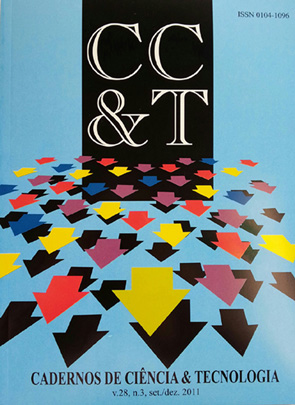AGROCHEMICALS IN VITICULTURE AND WINEMAKING: A BRIEF REVIEW
DOI:
https://doi.org/10.35977/0104-1096.cct2011.v28.16592Abstract
- Wine is obtained by alcoholic fermentation of must obtained from healthy, fresh and ripe grapes. This beverage comes from vine cultivation. When these vines are grown under high humidity and mild temperatures, they are subject to a great number of diseases whose control should be, in some cases, chemical. This study aimed at assessing the requirements for grape processing and wine production, as well as the state of the art for the analysis of some agrochemicals used in grape cultivation and possibly present in the finished product. The available literature review concluded that the requirements for grape processing are defined in the Brazilian law, although they are not as completely described as in other countries. Additionally, this study found that the application of certain agrochemicals impacts the quality of the finished product and may even be harmful to consumers’ health, besides mischaracterizing products regarded as organic. It was also found that the chromatographic separation technique, coupled with mass spectrometry detection, is normally used in developed methodologies to discriminate and quantify a fairly large number of substances used to combat vine pests.
Downloads
Published
2011-12-01
How to Cite
Rodrigues, A. G., Cardoso, C. E., & Chiapetta, S. C. (2011). AGROCHEMICALS IN VITICULTURE AND WINEMAKING: A BRIEF REVIEW. Science & Technology Journals, 28(3), 781–809. https://doi.org/10.35977/0104-1096.cct2011.v28.16592
Issue
Section
Artigos


